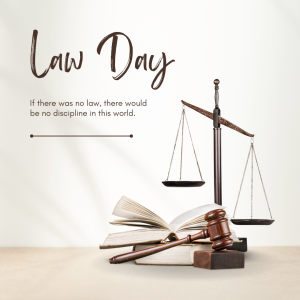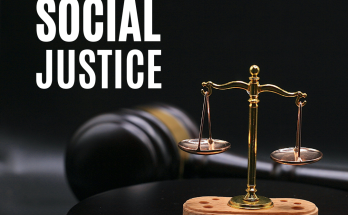In the last year or so, technolog(ies) have been the trend of innovation in such sectors as law. Consequently, there are several holders of the opinion that the technology development can be a substitution for human lawyer with AI and robot systems. What we aim at in this article is to address technology and law from less-orthodox point of view.
AI opponents in law may argue that AI would threaten the traditional position of human lawyers as being the core of the legal world. AI won’t be able to stand in for human decisions on judgments and particularities, as machines of themselves don’t have any emotional intelligence, empathy and critical thinking abilities, which are fundamental for these decisions. Contrary to this, this logic omits the massive positive impacts of AI on legal profession in terms of time saving, accuracy, and accessibility.
Legal research is one of the areas impacting the legal profession where a i brings substantial effects. For a thousand years legal study had been practiced by reading through the balls of legal texts, cases reports and law codes, to have the intended information for an issue at hand. Notwithstanding that, the entire process of legal analysis has been made more effective by the faculty of AI-powered tools which can look for legal words accurately and suggest solutions bring the result of past cases.Another field, where AI, is also changing things drastically, is contract drafting. Contracts are a basic necessity in either business arrangement or legal settlement. On the other hand, contract writers who are human can take a very long time and are also very hard work for them. AI tools are increasingly participating in law drafting and due to their machine learning and deep understanding of legal language these systems can point out problems and provide solutions which are making lawyers’ jobs easier and cheaper for clients.
i brings substantial effects. For a thousand years legal study had been practiced by reading through the balls of legal texts, cases reports and law codes, to have the intended information for an issue at hand. Notwithstanding that, the entire process of legal analysis has been made more effective by the faculty of AI-powered tools which can look for legal words accurately and suggest solutions bring the result of past cases.Another field, where AI, is also changing things drastically, is contract drafting. Contracts are a basic necessity in either business arrangement or legal settlement. On the other hand, contract writers who are human can take a very long time and are also very hard work for them. AI tools are increasingly participating in law drafting and due to their machine learning and deep understanding of legal language these systems can point out problems and provide solutions which are making lawyers’ jobs easier and cheaper for clients.
Dispute resolution is also one of the sectors in the legal profession where Artificial Intelligence is influencing the practice of law. To sort out dispute may take a lot of time and money because the classic way of resolving issues include proceedings at courts, which in many cases are costly and time-consuming. Nevertheless, with the emergence of stakeholders’ mediation services and technologies like online dispute resolution, conflicts can be traced and solved more effectively and affordably. These tools enable parties to participate in negotiation and mediation sessions virtually providing for an effective reduction of spatial transmitted disagreements.
Together with other technological innovations such as blockchain technology the whole world of law studies is experiencing a new type of transformation. Critics point out that blockchain is designed to be a decentralized alternate despite the fact that it can be used as a digital ledger system. Intermediaries like notaries or lawyers are no longer needed when transactions are carried out efficiently and securely on a block chain. Nevertheless, this argument has a drawback that it is unaware that the blockchain technology may bring multiple advantages for the sphere (the legal sector, for example), such as simplifying the whole transfer of the titles, speeding up the execution of contracts, and giving a hand to intellectual property rights management.Original ways of title transfering involves the involvement of notaries and lawyers as influential middlekings in such process. In contrast, the ownership titles can be signed off automatically (based on the blockchain-based smart contracts) with the key conditions being satisfied. This makes the transfer faster, cheaper and more secure.
Critics say that blockchain technology may replace a human lawyer’s role in negotiating contracts because it has a decentralized digital ledger system that allows for its distinct digital identities to be created, therefore letting the two parties know about of intermediaries such as lawyers. Although this argument is true, it still ignores the benefits of smart contracts such as the automated performance tracking and notification, making certain clauses easier to execute and the process faster, cheaper, and more convenient.Critics indicate that blockchain technology would replace human lawyers in intellectual property management thanks to the decentralized nature, digital ledger system it features which is capable of recording unique digital identities for intellectual property and as a result there is no need for the intermediates i.e. lawyers. Yet, this objection is not able to see that blockchain enable these problems related to violations or piracy by giving a practical and secured network for tracing ownership rights and usage.
In essence, while some might assert that technical innovations shall drive off human lawyers, it is a rather flawed premise since it is now clear that these machines are supporting rather than replacing them. AI, blockchain technology, and other technological progress accounts the legal profession with the use of better, faster, and more accessible aspects, among others. Technology advancement is apparently evolving at a faster pace with no one willing to take a back seat. It is, therefore, indispensable for lawyers to update themselves with the latest trends and how technology can be used to provide relevant legal services yet ensure ethics and good customer service is not disregarded.


